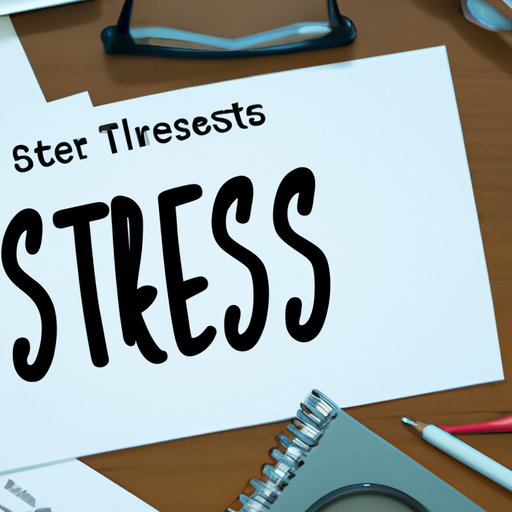
I. Introduction
Stress is an inevitable part of life, but it doesn’t have to control you. Maybe you’re overwhelmed with work responsibilities or personal life challenges, or perhaps you’re feeling the weight of anxiety and uncertainty. Whatever the cause, there are always ways to help you manage stress. This guide is for anyone looking to adopt healthy coping mechanisms and to start taking control of their stress levels.
II. Identifying Stressors
Before you can manage stress, it’s essential to identify its source. What triggers you and makes you feel overwhelmed? Work deadlines? Difficult relationships with family members or friends? Once you understand what’s causing your stress, you can begin to address it. Maybe it requires avoiding certain situations or changing the way you approach them.
A few tips to help you identify your stressors:
- Keep a stress journal
- Assess your physical and emotional reactions to different situations
- Identify recurring patterns in your stress
III. Practicing Mindfulness
Mindfulness is the practice of staying in the present moment and being fully aware without judgment. Mindfulness can help you cope with stress by improving your ability to regulate emotions and calm the mind.
Here are a few ways to practice mindfulness:
- Meditation
- Yoga
- Deep breathing exercises
- Body scan meditation
IV. Exercise
Exercise is an excellent way to manage stress. When you engage in physical activity, your body releases endorphins, which are natural stress relievers. Exercise can also help distract you from whatever is causing your stress while promoting healthy habits.
Some suggestions for exercise routines you can try during periods of stress include:
- Cardio: running, cycling, or swimming
- Mind-body exercises: yoga, Pilates, or tai chi
- Strength training: weight lifting or calisthenics
- Sports: casual basketball, soccer, or volleyball games with friends
V. Prioritizing Self-Care
Self-care is crucial for managing stress as it helps to create a healthy balance in your life. It’s important to make time for things that bring you joy and help you feel relaxed and refreshed.
A few self-care activities to consider include:
- Reading a book
- Going for a walk
- Taking a long bath
- Unplugging from technology for a few hours each day
VI. Connecting with Loved Ones
Social support is essential for managing stress. Connecting with friends and family can help provide a sense of comfort and perspective that allows you to better manage the stress you’re feeling.
Here are a few suggestions for ways to connect with loved ones and alleviate stress:
- Call or text a friend
- Join a hobby group
- Plan an outing with family members or friends
- Volunteer in your community
VII. Conclusion
Stress is an unavoidable aspect of life, but it doesn’t have to overcome you. Identifying stressors, exercising regularly, practicing mindfulness, prioritizing self-care, and connecting with loved ones are all healthy and effective ways to manage stress. It may take time to find the right combination of techniques that work best for you, but remember that taking care of yourself is always worth it.





